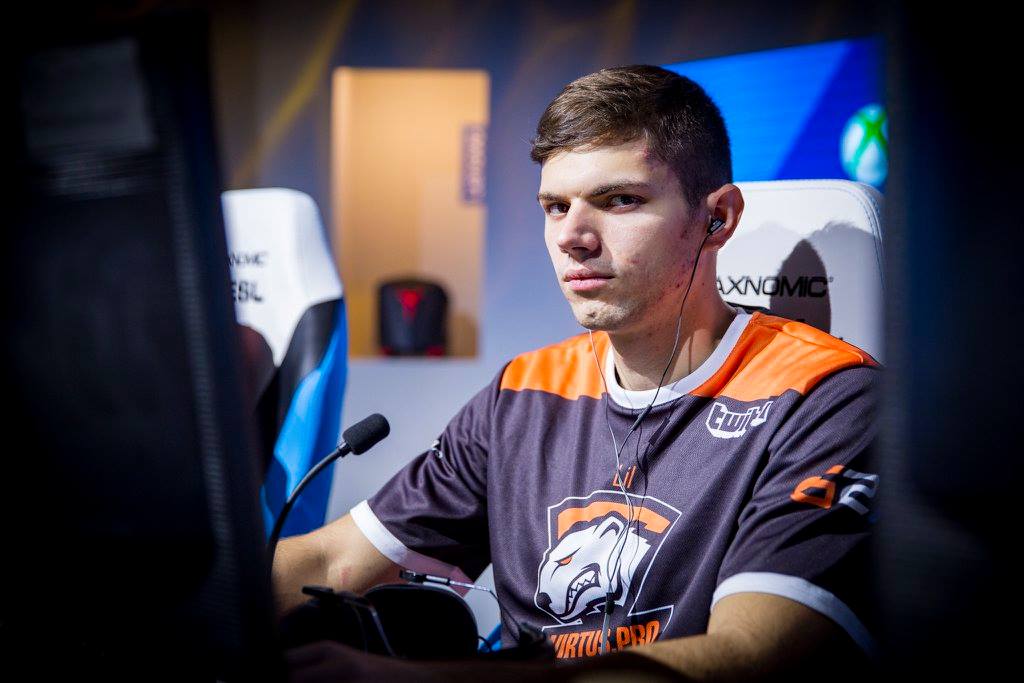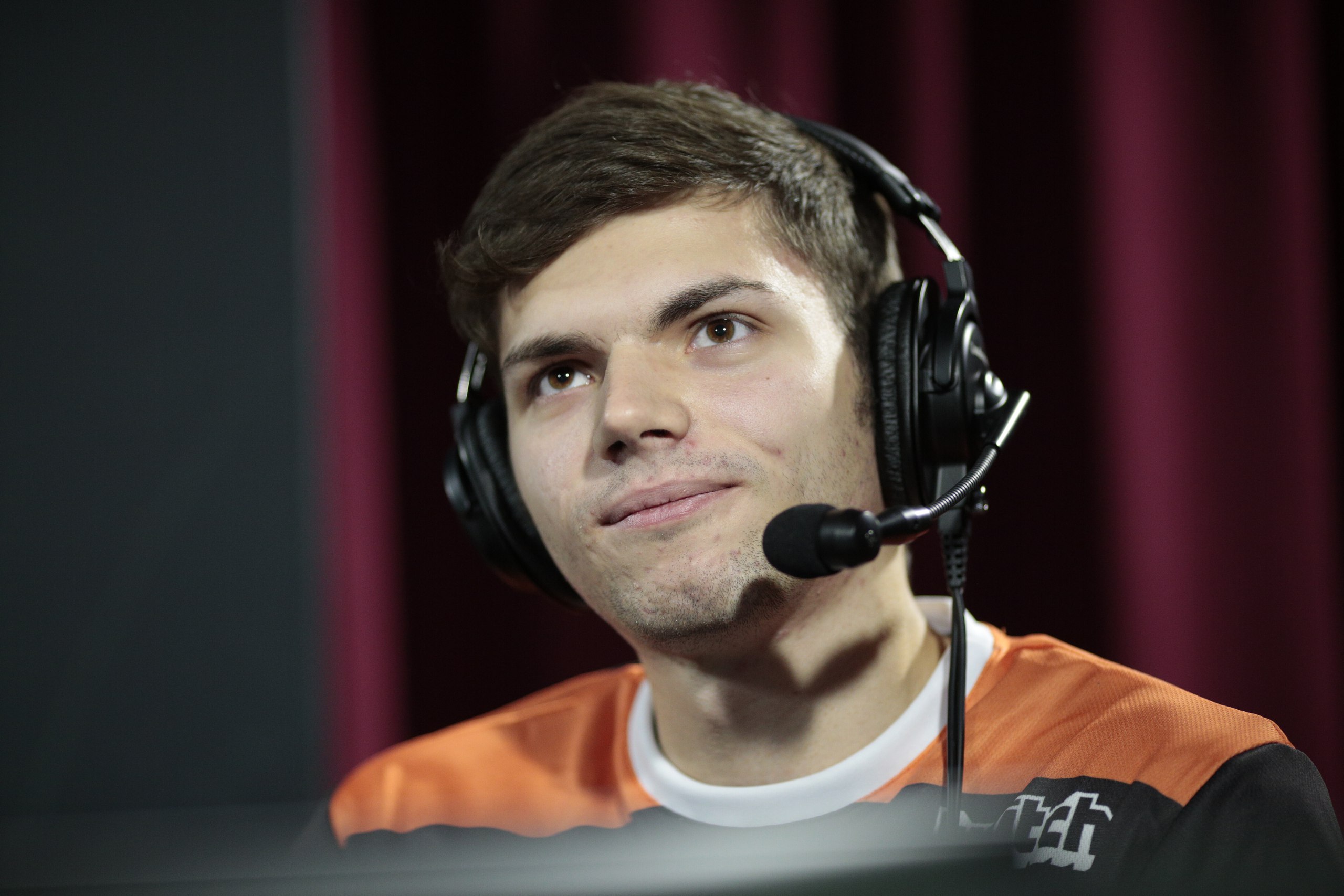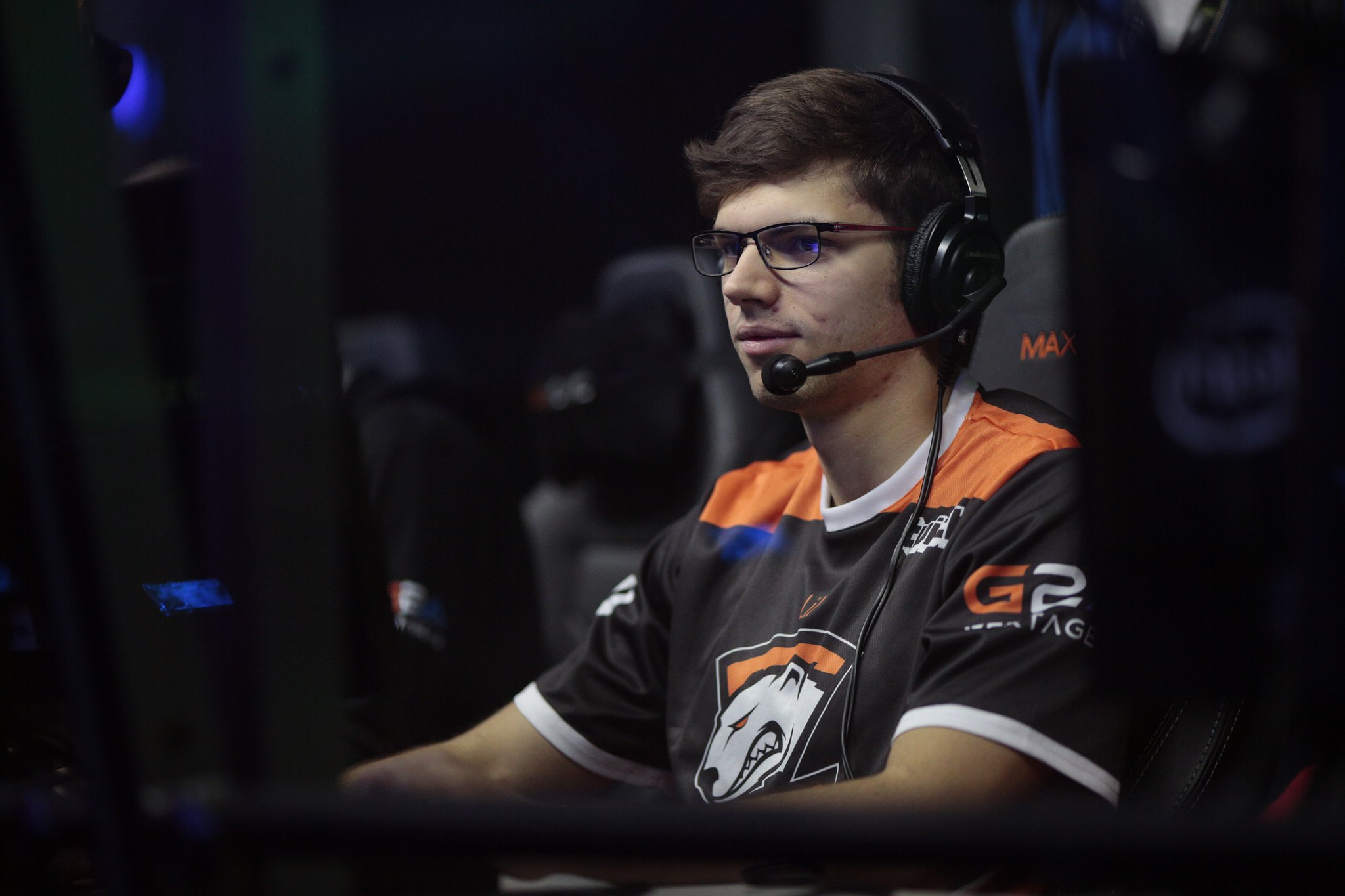Lil: "I warm up as if I was about to enter a ring"
In an interview with Red Bull eSports, Ilya “Lil” Ilyuk answered questions on what makes practicing in Dota 2 different from other games, what motivates his team, and what a beginner eSports player ought to know.

— Describe a regular day of practicing at Virtus.pro. How often do you practice?
— We get up at 9 or 10 in the morning. We devote three to four hours to solo practice, and four to six hours to practicing as a team. We finish at 9 or 10 p.m. and then do our own thing. Some go on practicing, some do sports, some watch movies and TV series. Almost all of what I’ve mentioned are things we do together. On average, we spend 10 hours a day in-game. We practice at our own facility in Krasnodar where we have all the conditions we need.
— How is Dota 2 practice different from other eSports disciplines, such as CS:GO? Which is more difficult for players?
— A professional Dota 2 player’s practice is much more difficult. This has to do with the fact that Dota 2 is a team game first and foremost, one in which you can only win through joint effort. Only being in a team can give you the necessary skills.
— I play support (the hardest role to practice solo), which is, in a sense, all about being led by others. Anything I do in the game depends on what my teammates are doing. But then in almost every pub game, I get matched with teammates who are way below my level and have no idea how to play to win. All I can practice in games like that is the mechanics of pushing my heroes’ buttons. I’m afraid it will hardly help me win a major tournament.
In CS:GO, individual skill is much more important. There are no roles—that is, everyone has more or less the same role, a shooter. Nothing stops you from practicing your aiming and then solo-killing all of the enemy team in every round, from scoring aces, winning clutches, you name it.
— What motivates your team during matches? Have you perhaps got any talismans or pre-tournament rituals?
— We’re motivated by what motivates any professional: a desire to prove to everyone (and, most of all, to yourself) that you’re the best. A desire to go down in history, to take the champion’s trophy and forever replay that moment in your mind when you raised the trophy cup above your head, reliving those incredible emotions over and over again.
As for talismans and rituals, everyone’s got their own. One of us puts on his lucky socks for the game, one doesn’t shave. I, for instance, warm up as if I was about to enter a boxing ring.

— You can hardly call eSports an active pastime. How do you stay in shape? What do you do to take your mind off the game?
— Sports, outdoor activities, vitamins and massage help us take care of our health. Other than that, we watch movies and TV series, read books, go to see movies in theaters, and hang out with our friends. Besides Dota 2, we play CS:GO, H1Z1 and some games on PS4.
— What useful everyday-life skills can you develop by playing Dota 2?
— The ability to heal your injuries by standing next to a fountain (laughs). Well, if we’re being serious, Dota 2 is a good way to boost your brain: it improves your timing, logical reasoning, intuition, reaction time and everything related to number-crunching. Dota 2 is a team game in which everything is built around interacting with others. Thus you develop communication skills which will be useful to you in real life, the ability to cooperate and to sacrifice yourself for the sake of a more impactful combat unit.
— Give a few pieces of advice to beginner eSports players. How can one tell that Dota 2 is one’s true calling?
— There’s no such thing as a “beginner eSports player”. There are only eSports players: no beginners. I wouldn’t advise anyone to start playing, at any age. Dota 2, like many other videogames, can break you; above all, it can break a child’s psyche. There are many other different activities in the world, more useful to society and to yourself.
But if it so happens that you’ve become passionate about your dream of becoming a professional eSports player, and you’re prepared to walk the same path I’ve walked, then be prepared to give it your all. All of your free time, your childhood and youth, being with your friends, with girls, all the various little joys of life that will no longer mean anything to you. Be prepared to give the game 100% of what you have and get zero returns (if not negative), in order to maybe become one of us many years later.

— What are your general thoughts on the future of Dota 2?
— I don’t have any thoughts. Life is too full of suddenness and unpredictability. Five years ago, no-one could imagine that The International would have a prize pool of $20 million. If we look at the calendar of tournaments and their prize pools, we’ll see that they’re only getting bigger.
eSports is becoming more popular; there are more investors and sponsors. Therefore there’s no reason to believe Dota 2 is going to die. On the other hand, all this growth is way too fast. So fast that the game’s engine itself may become obsolete in the near future, and then it may be succeeded by a hypothetical Dota 3. I don’t think too many people will be upset by that.
— What do you expect from the upcoming Kiev Major? Which team do you consider your main rival?
— I would very much like to play in the final, to the sound of the exultant crowd, us being the “home team”, and it’s something we really could pull off. Evil Geniuses are our main rival.
— If you do win the million dollars, what will you spend the money on?
— I’ll start my own business, realize my dreams, donate some of it to charity. I’ll invest in the future, so to speak.